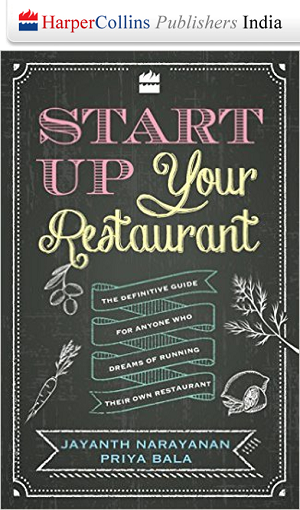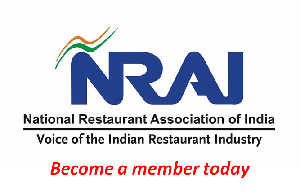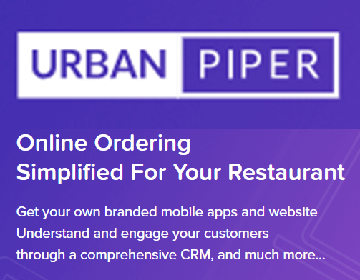
The challenges have been mounting for the restaurant industry in recent times and the prolonged lockdown threatens to be the last straw. Even now, for all the talk of stimulus and economic packages, the industry has realized it has to summon all its atmanirbhar if it is to survive the worst crisis it has ever faced. The industry has struggled to engage with policy makers and this has mainly been because of the inability to speak with one, powerful voice and be heard by the people in power, whether the GST council, the FSSAI, the commerce ministry, local police commissioners or municipal corporations.
Being a highly disorganized sector comprised mainly of small, local/regional players with just a few large players, getting the industry together is a daunting task. The largest organized restaurant business in the country today is Jubilant Foodworks, which owns Domino’s India, and it does Rs 3000 crore in revenues, less than 1% of the industry size. In industries where there are a few large players, such as airlines or hotels, it has been much easier for the leaders to come together and lobby with the authorities, often effectively.
In the past few years, the National Restaurateurs Association of India (www.nrai.org) has, remarkably, managed to bring a group of committed restaurateurs together and work towards the common goal of making things better for the industry as a whole. The NRAI’s most significant action was when it took on the Zomato Gold program, which drew attention to the fact that the third party aggregators and restaurants weren’t necessarily on the same side.
Since then, NRAI has stepped up its efforts to secure the interests of the industry and, specifically to reduce dependence on third party aggregators. These initiatives take the form of technology solutions and the association recently announced its first initiative, a strategic partnership with the O2O commerce platform, Dotpe, to increase sales and provide B2B digital ordering solutions fully integrated with a payment gateway for its member restaurants and cloud kitchens. We see this as a grounds-up solution that will allow restaurants of all sizes to offer an end-to-end digital solution. The customer will not even have to install an app; all that is needed is a smart phone with a camera for reading a QR code.
Speaking to Restobiz, NRAI president Anurag Katriar said work on the technology solutions began late last year. “After #logout, we were clear we wanted to wrest back control of our business. And our initiatives are designed towards that end. The first of the technology solutions we are putting out there is a system of placing orders digitally and paying online using your own device. We have tied up with Dotpe for this. Until now, the third party aggregators have been taking commissions, they have been huge partners in the restaurant business without investment. This will change that.’
As opposed to the fees and commissions to be paid to aggregator platforms – that have hurt restaurants badly – under the arrangement with Dotpe, there will be a flat fee of one rupee per transaction for NRAI members. ‘Even for non-NRAI members we are negotiating so that it does not exceed two rupees per transaction,’ Katriar explains. He adds that one of the goals underpinning the NRAI’s technology solutions is to also bust the false narrative that discounts are the only way to build businesses. ‘So far, discounts have been aggregator-driven. We will work to make it the restaurants’ prerogative. Say, for instance, I run a bakery. It is my discretion to offer all goods left at the end of the day at 50% off.’
One of the other decisions restaurants are going to be able to make is the gateway payment charge. ‘We don’t have to be bound to a weighted average gateway charge. A restaurateur who has a good rapport with his bank is free to arrive at the lowest rate,’ he said.
The other solution NRAI is fine-tuning right now is a loyalty program that will truly benefit restaurants and customers. ‘Customers look for value. Aggregators were putting out ostensibly wonderful products. But what they were selling was us, the restaurants,’ Katriar said. ‘So, we will soon unveil a shared loyalty program that will deliver real value. You can accrue points at any restaurant and spend them elsewhere. Who has a better network than us? It will be back-ended by a third party operator.’
The third solution in the pipeline is a much-needed delivery platform. ‘Work is under way,’ Katriar told us. ‘It will be a space where buyers and sellers can carry out transactions on their own terms. In the present scenario, there’s a lack of clarity pertaining to rules, the aggregators decide everything, such as platform usage charges. We don’t want digital landlords anymore and the restaurant customer will be our customer.’
The proactive approach adopted by the NRAI to support restaurant businesses, partnering with companies that will add value to the restaurant industry in the long term and allow them to engage with their customers meaningfully – unlike the current set of aggregators and most tech solutions whose success depends on controlling the customer’s buying choices through a marketplace – is deserving of huge applause. This positivity is especially needed at a time when the government has failed to even acknowledge the industry, leave alone support it in this time of crisis. ‘We did not want doles, only policy changes liquidity support,’ a disappointed Katriar said.
It is even more imperative then to ramp up the strength and voice of the NRAI. ‘The crisis has made many cities to wake up to the need to be part of this movement,’ Katriar said. ‘More chapters will soon be formed, in Goa, Jaipur, Hyderabad and other cities. We don’t want to canvass for membership. Restaurants must see value in being part of the association and what it is working to achieve.’










